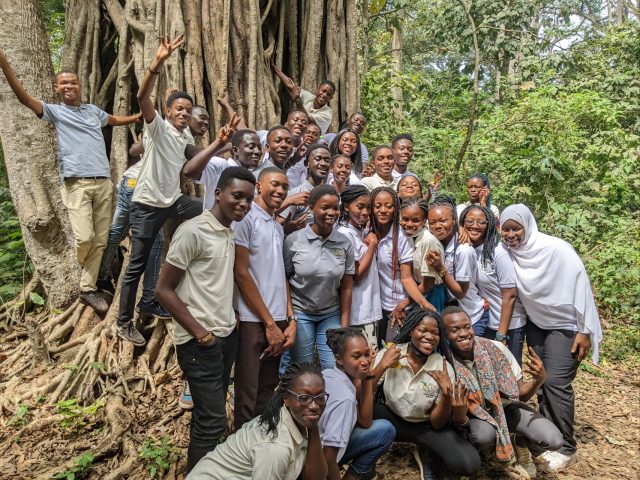Newly recruited members of the Kufuor Scholars Program (KSP) have undertaken a social impact tour to some rural communities in Ghana as part of their inaugural boot camp.
The 30 newly recruited scholars spent 2 weeks on the campus of the Akenten Appiah – Menka University of Skills Training and Entrepreneurial Development (AAMUSTED) in Asante Mampong for the boot camp, during which they visited the rural areas.
During the boot camp, they participated in a series of lectures and seminars focusing on leadership, career development, and personal development, among others. The scholars also interacted with political and traditional leaders. The social impact tours to Meminaso and Makango were specifically to expose the scholars to life in rural Ghana.
They were divided into various groups and given the task to visit various households in the rural communities, introduce themselves, engage the people about their daily struggles and successes, and report back subsequently.
‘We learned that majority of the youth of the Makango community had migrated to the big cities in search of greener pastures,” Salma Adams who is a student at the University for Development Studies recounted.
“I also met a young girl called Aisha. Aisha sold water and drinks. I engaged her in conversation and although shy at first, she revealed she was selling for her mom. It saddened me but what she revealed next shocked me. She said she wants to be a doctor,” Salma recounted.
“I was astonished and glad that she had such a big vision at such a young age. It just proved that everyone has a hidden passion that has to be identified and developed. I just know there are many Aishas in Mankago and I’d love to go back and offer my quota to the best of my ability,” he added.
Some of the scholars also had fond memories of their visit to Meminaso, another rural community on the Ejura – Nkoranza road. “During this visit, I interacted with the natives of the community on issues pertaining to the availability of utilities, access to education, and their living standards. We were introduced to a river called “Nsuo Abena” as their primary source of drinking and potable water for the community,” Success Peters, one of the scholars and student of the Kwame Nkrumah University of Science and Technology (KNUST) recounted.
“The sight of the water body as a source of drinking water was quite disturbing as it wasn’t clean. This experience has made me realize the devastating conditions these rural communities face and the indication that I need to be the change that I want to see in the world today. I will strive to be a catalyst for socio-economic transformation in my community and Ghana,” he added.
Another scholar Nereus Gyasi of KNUST was equally saddened by the quality of drinking water the community had. “When we got to River Abena at Meminaso, the first question I asked myself was; ‘so is this part of Ghana?’ It was so disheartening seeing children carrying heavy pans of water on their heads to their various households for various purposes,” he said.
“What surprised me most was that this river is the source of water for the entire community. They drink, and use it for washing, bathing, and all other household chores. This trip stimulated my appetite to help my country because it taught me that there is a lot to do in my motherland,” he added.
The scholars returned from the boot camp gingered to do a lot more to contribute their quota to the socio–economic development of Ghana as future leaders.
















